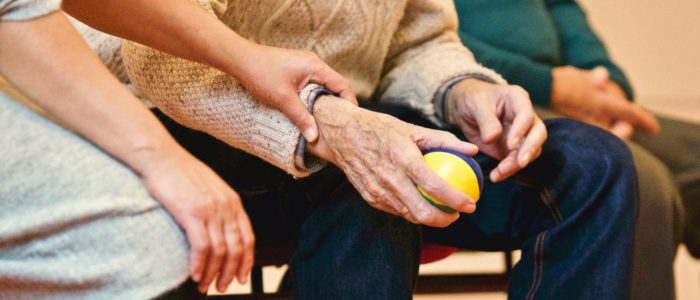Saving the Economy £132 Billion: An Invisible Workforce

A few months ago, I was speaking to a lovely group of ladies in Wolverhampton who attend a carer support group. They all had different caring experiences, but the most striking thing about the group was that they didn’t consider themselves as ‘carers’ – they were simply looking after the people they love. It can be hard for some to separate a caring role from the relationship that they have with the person; some of the ladies looked after their parents whilst others cared for their husband or children, so it seemed only natural for them to be responsible for caring.
One of the ladies did not specifically care for a loved one as such, but she was retired and spent a lot of her time visiting people from her church who needed a bit of extra help. This ranged from simply having a chat to helping them in their homes. She had gained somewhat of a reputation within her local faith community for this; if there was someone that needed some care, her church pointed her in their direction. It struck me that this lady found this so satisfying and rewarding – she was proud to brighten up these people’s lives! Many people agreed that there are numerous lonely people in the area who are isolated due to old age and frailty.
Whilst this is true, it is significant that carers themselves may also experience isolation and loneliness. Many carers spend most of their time looking after their loved ones and find that they have no time to socialise or enjoy any hobbies. Others juggle work and family life which can lead to a sense of frustration and guilt. It is sometimes difficult for them to explain these feelings to people who have no experience being a carer, and this leads to yet further isolation.
Around seven million people in the UK are carers. They are people who dedicate a large chunk of their time to looking after relatives or loved ones who need help due to a variety of reasons, from illness to disability. This type of care is unpaid. If you’re reading this and are not a carer already, the chances are you most likely know someone who is a carer or may one day become a carer yourself.
A couple of weeks ago I attended an event hosted by Carers Trust which shared their findings on a project called ‘Peer Support Plus’. The project gives out grants to several carer support groups around the country to run regular sessions for carers that include activities, trips and lunches. This is an important chance for them to take a break from their caring responsibilities and make friends with people in similar situations.
Without grants like these, carer services can offer advice and guidance but are usually financially unable to run regular social activities. The project was a resounding success – people reported a decrease in feelings of isolation and found the groups very helpful. It is easy to see why – many faith organisations and places of worship run activities where people can connect and take a break and have done so for many years. This is yet another example of how faith groups have so much to offer in terms of social prescribing and how connections can potentially be made between faith groups and other services, in this instance with carer support groups.
It is important to bear in mind that, like the ladies from Wolverhampton, not everyone defines themselves as a carer. But many people are part of this invisible workforce, which saves the economy a huge £132 billion each year. The number of carers is increasing year on year as the population ages – so it’s vital that the support for them is embedded in a truly joined up system that enables carers to prioritise their own wellbeing as well as the people they care for. Faith organisations already play a big part in the health and wellbeing of their local communities and have vast experience in bringing people together and reducing loneliness. This is not just a valuable asset for carers, but for society in general.
For more information about carers and to find your nearest Carers Trust partner, please visit carers.org
Photo by Matthias Zomer from Pexels



